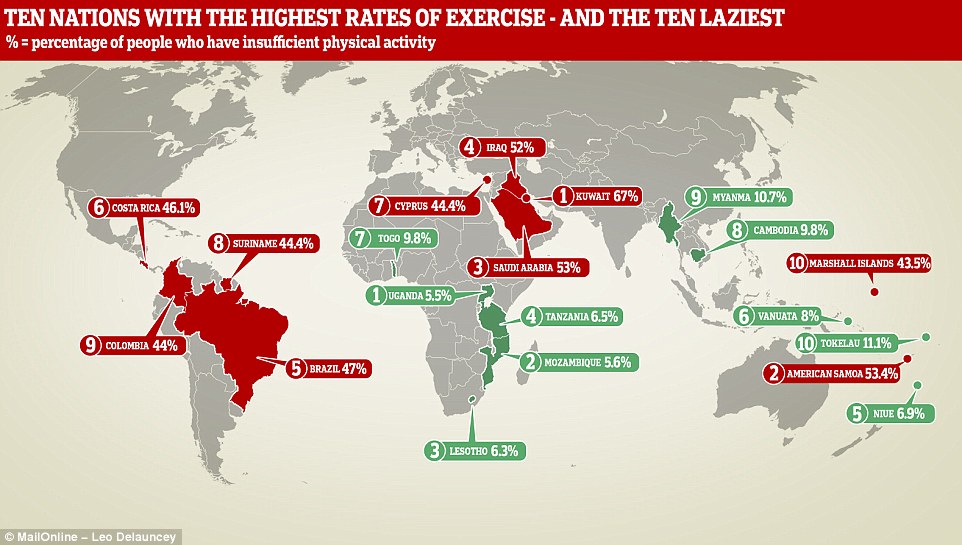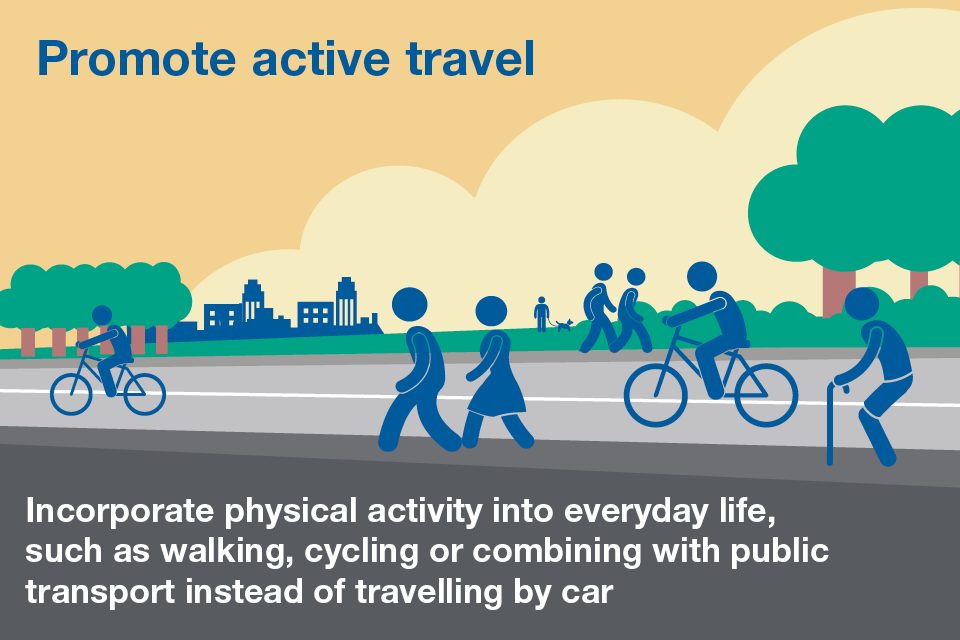According to a WHO report published on medical journal The Lancet, Kuwait has ranked last out of 168 countries with only 67 per cent of it’s population who are physically inactive.
Uganda tops the list with being the most energetic country where only 5.5 per cent are physically inactive.
India was ranked 117 with 34 per cent of population not being physically active.
The report also shows that in countries like Saudi Arabia, Kuwait, Iraq and American Samoa, more than half of adults do not take part in physical activities.
The WHO report also stated, “Women were less active than men, with an over 8% difference at the global level (32% men vs 23%, women).

High income countries are more inactive (37%) compared with middle income (26%) and low-income countries (16%).”
The report was prepared by collecting ‘data from population-based surveys reporting the prevalence of insufficient physical activity, which included physical activity at work, at home, for transport, and during leisure time (ie, not doing at least 150 min of moderate-intensity, or 75 min of vigorous-intensity physical activity per week, or any equivalent combination of the two)’.
The report said that the scientists used ‘regression models to adjust survey data to a standard definition and age groups and also estimated time trends using multilevel mixed-effects modelling’.
The report also said that regular physical inactivity increases risk of poor health, including cardiovascular disease, several types of cancer and diabetes, falls, as well as mental health conditions.
The WHO urges people to do least 150 minutes of moderate exercise a week, such as cycling or brisk walking, or 75 minutes of vigorous exercise, like running.









